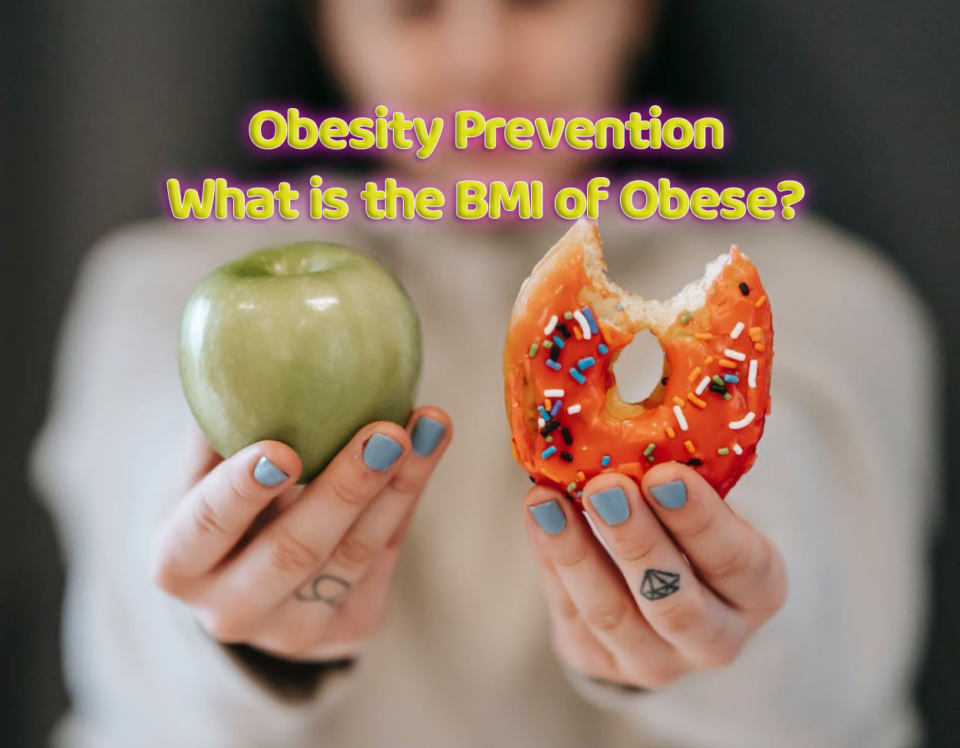Obesity is an escalating global epidemic, closely linked to a multitude of health complications that can significantly impact an individual’s quality of life and longevity. So, what is the BMI of obese & what are some obesity prevention methods that you can start doing today?
In today’s fast-paced, convenience-oriented world, maintaining a healthy weight can seem like a daunting task, but it’s entirely achievable with a well-planned strategy. This article will provide practical strategies on how to avoid becoming obese, how to keep weight off, and will explore the potential negative health effects of obesity.
Obesity Prevention
Understanding how to prevent obesity requires a grasp of the complex interplay between our dietary habits, physical activity, genetic makeup, and environment. But ultimately, prevention is often rooted in lifestyle choices.
1. Balanced, Nutritious Diet: A balanced diet full of fruits, vegetables, lean proteins, and whole grains provides necessary nutrients without excessive calories. Limiting the intake of processed foods, sugary drinks, and high-fat meals can help maintain a healthy weight. Portion control is also crucial. Using smaller plates and bowls can help to ensure moderate portion sizes and prevent overeating.
2. Regular Physical Activity: Incorporating regular physical activity into your routine is vital. The World Health Organization recommends at least 150 minutes of moderate-intensity or 75 minutes of vigorous-intensity physical activity per week. This could include activities like brisk walking, jogging, swimming, or cycling.
3. Regular Check-ups: Regular health check-ups can provide valuable insights into your health status, enabling early detection and management of weight gain.
4. Adequate Sleep: Research suggests that inadequate sleep might be a risk factor for obesity. Aim for 7-9 hours of sleep per night to ensure your body has time to rest and repair.
5. Stress Management: High stress levels can lead to unhealthy eating habits and weight gain. Techniques such as yoga, meditation, and mindfulness can help manage stress levels.

How to keep the weight off after losing it & BMI of Morbidly Obese
Keeping weight off after losing it is often a bigger challenge than the initial weight loss. Here are some strategies to help maintain a healthy weight over time.
1. Regular Exercise: Regular physical activity helps burn calories and build muscle, which can boost your metabolism. It’s also beneficial for your mental health.
2. Healthy Eating Habits: Continue to eat a balanced diet rich in fruits, vegetables, lean proteins, and whole grains. Make these habits a permanent part of your lifestyle.
3. Monitor Your Progress: Regular self-monitoring can help you stay aware of your progress. This can involve weighing yourself weekly or tracking your food and physical activity.
4. Support Networks: Surround yourself with supportive family and friends who encourage and motivate you in your journey. You may also consider joining a weight loss group or consulting a dietitian for professional advice.
5. Coping Strategies: Develop healthy coping strategies for when you encounter stress or emotional upheaval. This can prevent reverting to unhealthy eating habits during such periods.
Negative Health Effects of Obesity & BMI of obese
Obesity is linked to a host of physical and mental health problems.
1. Cardiovascular Diseases: These include heart disease and stroke. Obesity, particularly excess fat around your waist, increases the risk of high blood pressure, high cholesterol, and atherosclerosis.
2. Type 2 Diabetes: Obesity is a major risk factor for type 2 diabetes, characterized by insulin resistance and persistently high blood sugar levels.
3. Certain Cancers: Obesity can increase the risk of several types of cancer, including breast, colon, endometrial, kidney, esophageal, and pancreatic cancers.
4. Musculoskeletal Disorders: Excess weight can put additional strain on the body’s skeletal structure and muscles, contributing to conditions like osteoarthritis.
5. Mental Health Issues: Obesity can contribute to mental health disorders like depression and anxiety. The social stigma associated with obesity can further exacerbate these problems.
6. Reduced Life Expectancy: Given the health problems associated with obesity, it significantly increases the risk of premature death.
What’s considered obese & how to calculate BMI of obese & morbidly obese
Body Mass Index, or BMI, is a mathematical formula used to determine whether a person has a healthy body weight for their height. It is a general indicator used by health professionals to identify potential weight-related health risks. BMI is calculated by taking a person’s weight (in kilograms) and dividing it by the square of their height (in meters). Calculating the BMI of obese can be tough. The formula for calculating BMI is as follows:
BMI = weight (kg) / [height (m)]^2
For example, if a person weighs 70 kg and is 1.75 meters tall, their BMI would be calculated as follows:
BMI = 70 / (1.75)^2 = 22.86
This result would indicate that the person has a normal weight, as per the standard BMI categories. These categories, as outlined by the World Health Organization, are as follows:
- Underweight: BMI less than 18.5
- Normal weight: BMI 18.5-24.9
- Overweight: BMI 25-29.9
- Obesity: BMI 30 or higher
However, obesity itself is classified into three grades. Class I obesity is a BMI of 30-34.9, Class II obesity is a BMI of 35-39.9, and Class III obesity, also known as morbid obesity, is a BMI of 40 or higher.
Morbid obesity is a serious health condition that can interfere with basic physical functions such as breathing or walking. It is termed ‘morbid’ because of its potential to cause numerous comorbidities, or co-existing conditions, such as type 2 diabetes, heart disease, high blood pressure, certain types of cancer, and sleep apnea, among others. These conditions significantly increase the risk of premature death.
Preventing obesity and maintaining a healthy weight are vital for overall health and wellbeing. It involves lifelong commitment and a holistic approach that encompasses diet, physical activity, sleep, stress management, and regular health check-ups. By understanding the potential health risks of obesity, we can motivate ourselves to adopt and maintain healthier lifestyles. Remember, every small step towards a healthier lifestyle counts and it’s never too late to start.

